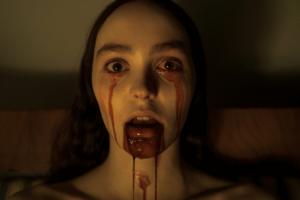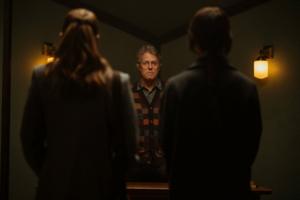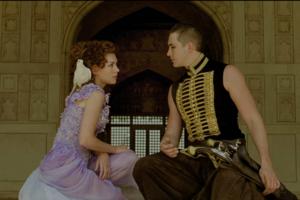Entertainment
/ArcaMax

Review: 'A Complete Unknown' Has Bob Dylan Brought Back Alive
There's never been a shortage of people who dismiss Bob Dylan as a lousy singer. Or no singer at all, even.
"Critics have been giving me a hard time since day one," Dylan said in 2015. "Critics say I can't sing. I croak. Sound like a frog. Why don't critics say that same thing about Tom Waits? ... Why do I get special treatment?"
In an uncanny...Read more

Review: 'Nosferatu' and 'Babygirl' or Blood and Cookies
At the age of 41, director Robert Eggers is right at home by now living in the past. Eggers set his first feature, "The Witch" -- a film in which many people first laid eyes on Anya Taylor-Joy -- in New England in the 1630s. His second picture, "The Lighthouse," examined the cranky interactions of flame-tenders Willem Dafoe and Robert Pattinson ...Read more

Review: 'The Order' or Silent Brotherhood.
America in the 1970s and '80s was for some reason fruitful ground for wing-nut racial psychopaths and frothing antisemites. These people cursed their oppression by ZOG -- the "Zionist Occupation Government" -- and yearned loudly for the extermination of Jews and Blacks and, basically, anyone else who wasn't them. Their literary taste, such as it...Read more

Review: 'The Last Showgirl' or Meet Pamela Anderson.
We're all Team Pamela now; how could we not be? Pamela Anderson's story, with its sunny, sexy, dream-come-true beginning and its darkening, porn-come-true trajectory, could have been anybody's bumpy trip.
It hasn't all been awful, of course. Anderson was a little Canadian kid who came to the States, blossomed into a hot number in Playboy ...Read more

Review: 'Yacht Rock' or to Live and Play in LA.
What is yacht rock, anyway? Is it even rock and roll? In the new HBO documentary "Yacht Rock: A Dockumentary," Mac DeMarco, a professional entertainer who you'd figure would know, says the genre "exists in a certain zone. It's not that it doesn't rock, but it doesn't rock too hard." Comic Fred Armisen, who wrote the intro for Greg Prato'...Read more

Review: 'Gladiator II' or Roma Confidential.
The year 2000 was a very good one for Ridley Scott. The director's neo-swords-and-sandals epic "Gladiator," released in May of that year, went on to gross some $451 million at the worldwide box office -- real money in those days. And when the next batch of Oscars was handed out, "Gladiator," nominated for 12 of them, took home five, including ...Read more

Review: In 'Heretic' Hugh Grant Goes Dark.
"Heretic" is a movie with a message. The message is: Don't get too chummy with smiley men in festive cardigans, especially if they have blueberry pie on their breath. And double-especially if they look like Hugh Grant. Or, worse, if they turn out to actually be Hugh Grant, which is the case here, right down to the crinkly Grant smile ...Read more

Review: 'The Fall' is a Magical Mystery Tour.
Here's some good news: "The Fall" is back. After an 18-year hibernation, director Tarsem Singh's glorious cult fantasy is being given a brief theatrical run (in a 4K restoration) and is also, for the first time, streaming, too (on MUBI). For anyone who's never seen the film, this is an opportunity worth seizing.
The lore surrounding "The Fall" ...Read more

Review: 'Venom: The Last Dance' Comes Not a Moment Too Soon
In the pantheon of notable big-screen comedy duos -- Laurel and Hardy, Olsen and Johnson, Martin and Lewis -- surely room can be found for Venom and Eddie. You know: Venom, the standup Symbiote from outer space, and Eddie Brock, his earthbound straight man. Both of these characters, each played by Tom Hardy, are reteamed in "Venom: The Last ...Read more
Review: 'Anora' is Mad Love.
"Anora" is a cool breeze of a movie that billows into a whirl of heart and soul and crazy foul-mouthed action. It's a classic screwball adventure set amid a group of bumbling lowlifes and the chattery strippers, shifty priests, teed-off Russian oligarchs and uncooperative candy store owners who vex them at every turn. There's also a zonked crime...Read more











